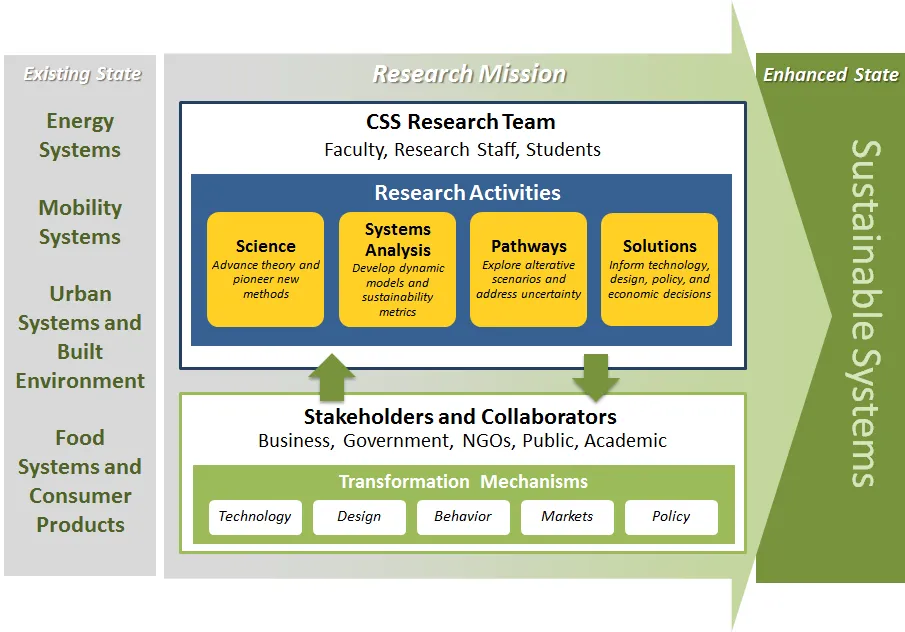Sustainability science and engineering, by its very essence, is interdisciplinary. To better align the broad areas of sustainability with the expertise of the faculty who lead the research, the Center for Sustainable Systems has organized all research under four major systems: Energy; Mobility, Urban Systems/Built Environment; and Food/Consumer Products. Some of these broad research areas are sub-categorized into more focused areas.

Energy Systems
Energy is a critical input to all systems of our modern society. Unlike materials, energy is intangible and thus difficult for some to conceive. But the choice of fuel, the efficiency of conversion of an energy source to desired work, and the infrastructure needed to make that power available, all have significant impact on the environmental and economical performance of a particular system.
- Energy related projects & publications
Mobility Systems
Modern society relies on clean, safe, convenient and affordable movement of people, raw materials and finished goods to function properly. Mode of transport, fuel source, powertrain, vehicle capacity and many other traits influence the sustainability of a transport system.
- Transportation related projects & publications
Urban Systems and Built Environment
More than half the world's population now live in urban environments. Dense settlements can be more efficient than those that sprawl, especially when the linkages between food, water, shelter and waste are understood and designed to synergize rather than antagonize crucial functionality. Because most infrastructure has a long service life, early decisions continue to impact the viability of a community often for decades.
- Buildings related projects & publications
- Communities related projects & publications
- Materials related projects & publications
- Water Resources related projects & publications
Food Systems and Consumer Products
Production and distribution of food and products typically have a much shorter duration than infrastructure, but the sheer volume can place heavy demands on natural resources, both to supply the inputs and to handle the wastes.
- Food & Agriculture related projects & publications
- Consumer Products and Packaging related projects & publications
- Services related projects & publications